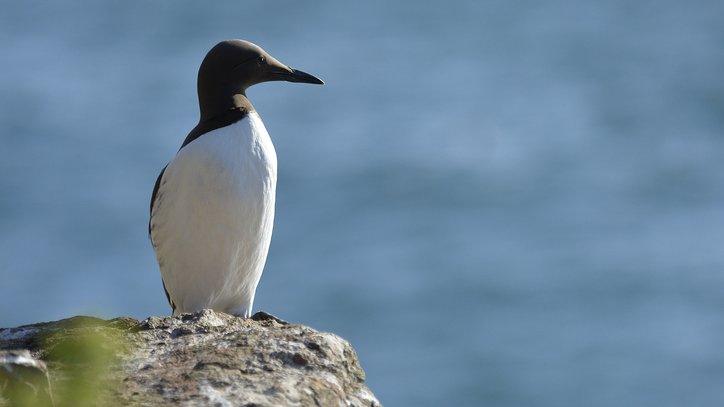Marine Conservation Society asks for help with stranded turtles on UK beaches
- Published
- comments
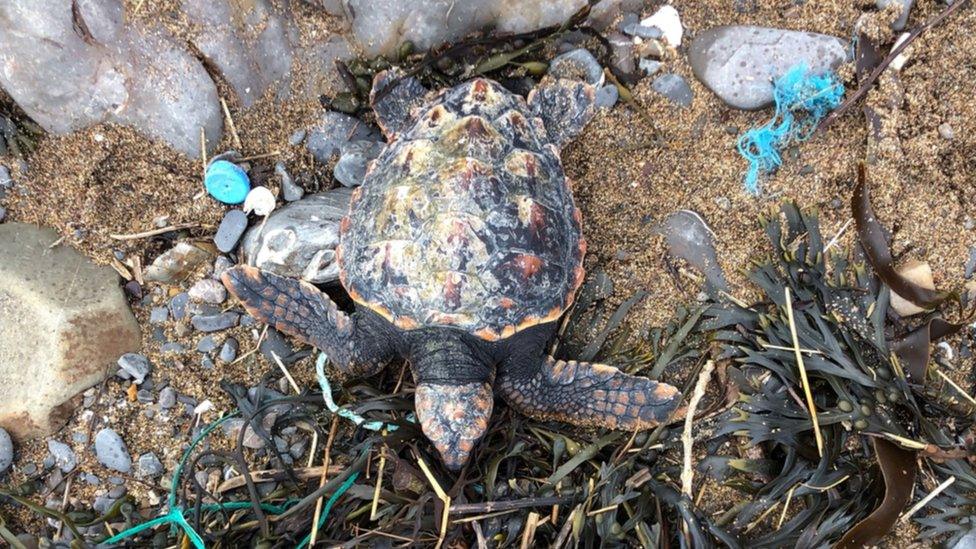
This is one of the loggerhead turtles that has been found this winter
It's not a sight we normally see along our coastlines, but young turtles have been washing up on UK and Irish beaches this winter.
The Marine Conservation Society say its caused by stormy conditions around the world causing the youngsters to be carried off into different waters.
Since November there have been 13 sightings of stranded turtles in the which experts say is unusually high.
Here's how to help a stranded turtle on a nearby beach - don't put it back in the water.
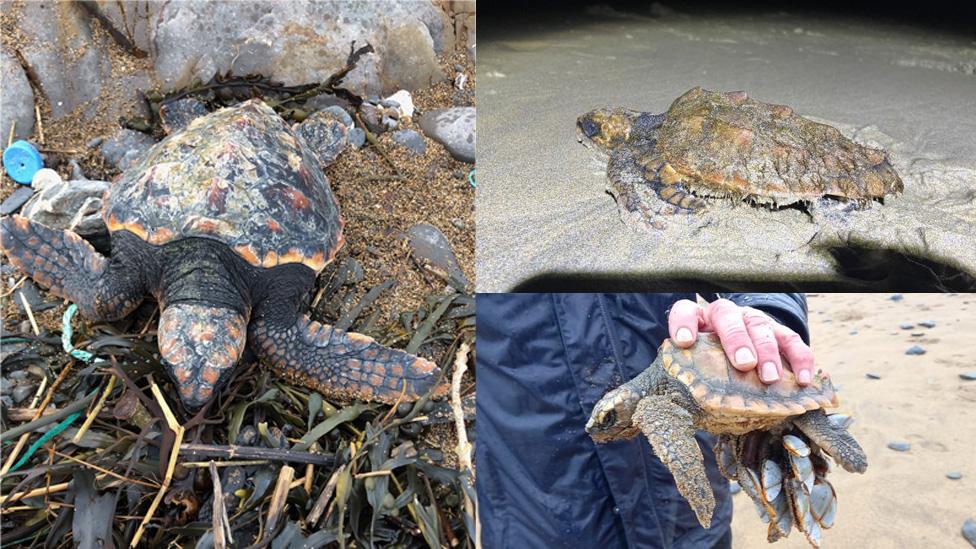
These are some of the turtles that have been found stranded on UK beaches this winter
The Marine Conservation Society and Marine Environmental Monitoring keep records of turtle sightings in the UK and Ireland.
Leatherback turtles are the most common - their leathery skin can withstand cold temperatures of UK waters where they travel to feed on jellyfish in the summer.
Other species like the loggerhead, green turtles and Kemp ridley turtles are much less common and aren't usually in our waters by choice - its too cold for them.
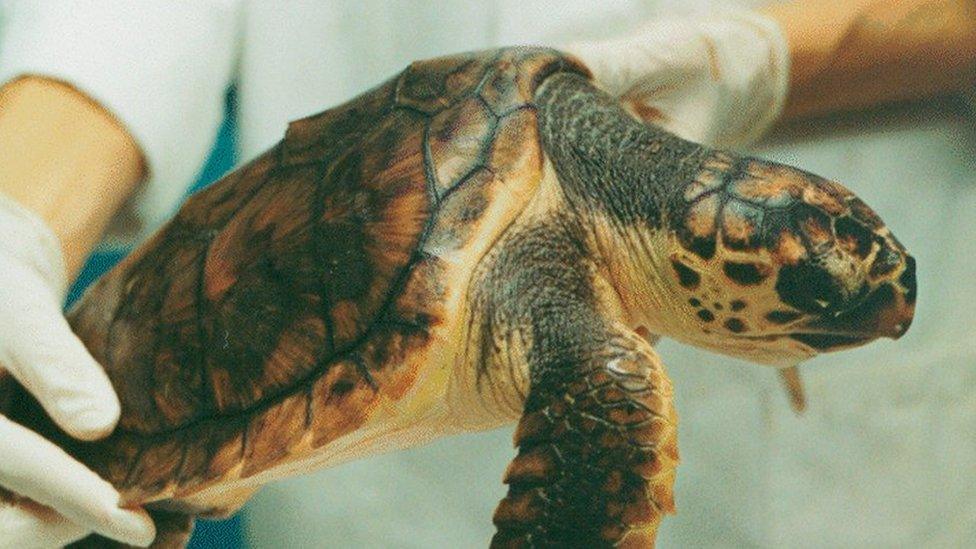
Most sightings of the 13 sightings have been in the south-west, with one also reported on the west coast of Ireland in County Mayo
Experts think the turtles have struggled to fight strong winds and currents in their native waters of the US and Caribbean and are then carried into our cold UK waters.
Species like the Kemp ridley and the loggerhead go into cold water shock and can't survive for a long period of time under these conditions.
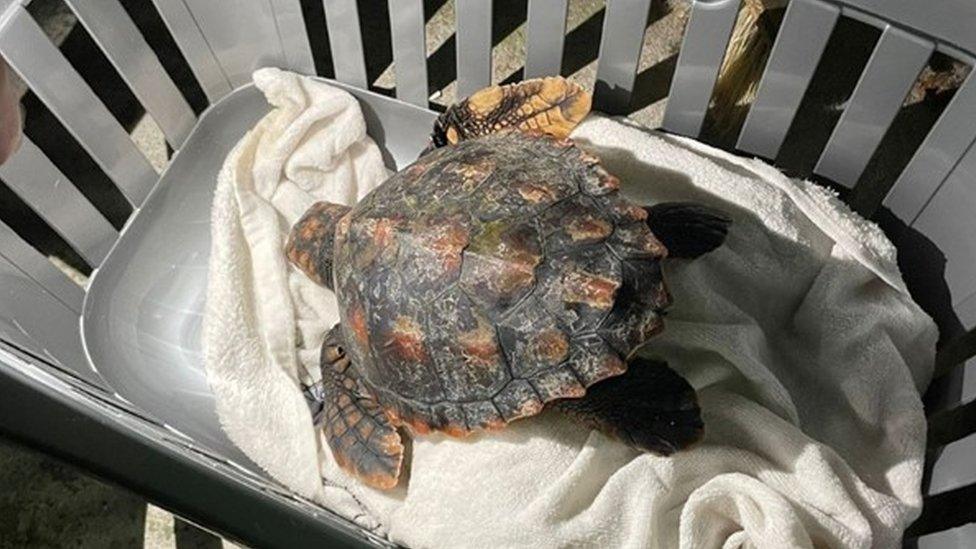
Four of the turtles found are now recovering in rehabilitation with the hopes of getting them back to the wild eventually
What to do if you find a stranded turtle
If you do find a stranded turtle, DO NOT put it back into the sea.
Instead, wrap the turtle in a damp towel and set it on its belly somewhere safe and sheltered, raising its back end slightly to allow any water to drain from its lungs.
If you need to move the turtle, don't pull on its flippers, pull on the shell instead.
Be sure to report the sighting as soon as possible to the Marine Conservations Society so that the turtle can be taken to a specialist facility where it can be treated by trained vets.
- Published11 March 2020
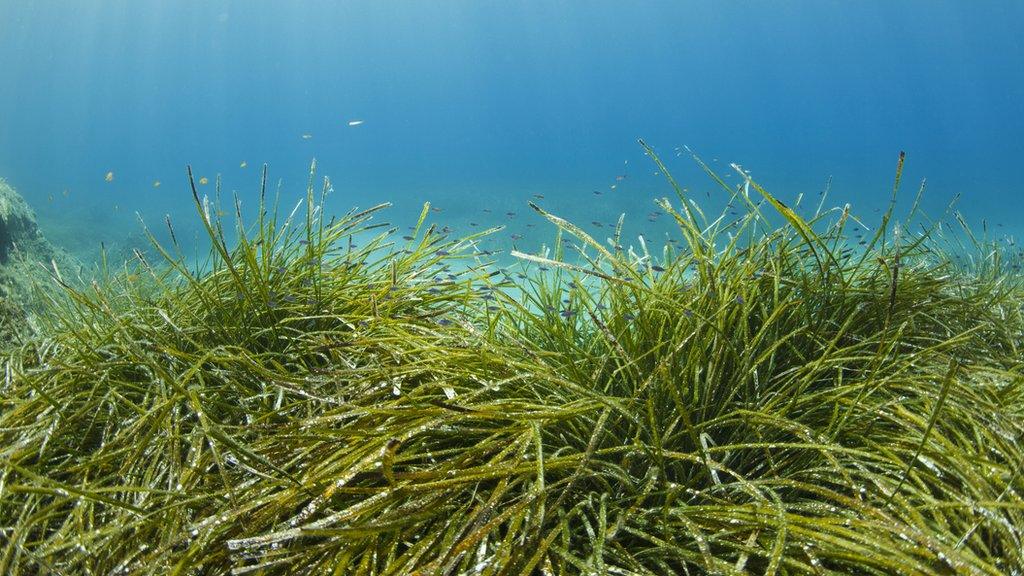
- Published3 January 2023
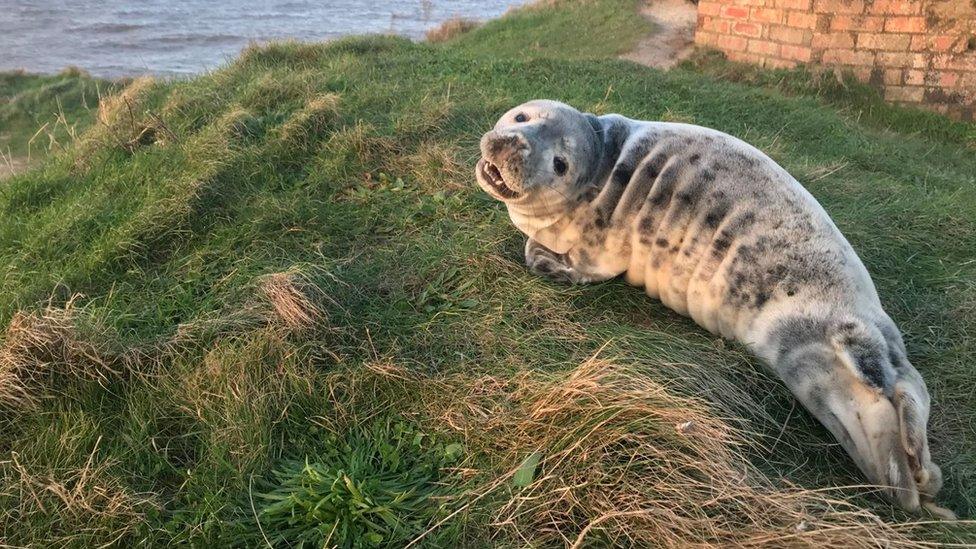
- Published13 November 2022
